- Home
- Tim Lebbon
RIME (Kindle Single) Page 3
RIME (Kindle Single) Read online
Page 3
I changed rail tubes, and on the next one there were three people already seated. I knew one of them, a horticultural engineer called Bellamy. He’d worked on one of the central farms since he was a child, tending crops and ensuring that we had access to the fresh food––fruit, vegetables, modified meat growths––that kept us all alive. He was a cheerful old man now who loved his job and rarely saw a downside to anything.
He stared at me as I boarded. I took a set opposite him and the two others, nodded, glanced away. Bellamy continued to stare.
“What?” I asked.
“You,” he said. That was all. I held out my hands, eyebrows raised, inviting elaboration. He snorted and looked away.
“They might have been a threat,” I said. It sounded weak, even to me.
“They are now,” one of the others replied. She was wearing an Environment uniform. I could not recall ever seeing her before. Maybe she had come down from the north, close to Bridge. Some of the three hundred crew moved and worked in very different circles, and it was entirely possible to spend a lifetime on Cradle without seeing and knowing everyone.
“They did something,” I said. “Crashed our comm systems, isolated us.”
“Maybe they thought we were a threat,” Bellamy said.
“We were,” the woman replied.
“No,” I said, but it sounded pathetic. I couldn’t justify my actions. I could barely even explain them. I tried to recall the act of opening fire, what I had felt and thought beforehand, why I had done it, but everything was vague. Maybe the communications breakdown had made me feel like a frightened child, separated from its parents for the first time ever, but that was no excuse for the violence I had wrought.
“I’m sorry,” I said. I realised that everyone throughout the ship would know that it was me. Cradle must have issued an announcement.
“I might have done the same,” the other man with Bellamy and the woman said.
“I wouldn’t,” Bellamy said. “This was something we’ve wondered about for years, ever since Cradle began its journey. The possibility of encountering alien life. It wasn’t our mission, but it was our hope. It should have been wonderful.”
His words hung heavy, and at the first opportunity I exited the rail tube and waited for another.
Close to the Core, I started making my way south. Every rail-tube was busy, filled with crewmembers bustling back and forth. Not all of them seemed to recognise me, but those who did only stared. The weight of their silent accusations bore me down.
At a main station I went to a comm-port and tried to locate Geena. I found her implant quickly. In my confusion and uncertainty I’d travelled past where she worked. I tried to signal her but her implant remained inactive. She didn’t want to talk to me. The idea was horrible. I hoped it was because she was incredibly busy, her and every other MediTech struggling to save the millions of lives.
How selfish am I? I thought. Right then, the idea of a small room and a closed door seemed so inviting.
I scanned system updates and paused.
“Cradle?”
“I’m here.”
“What’s happening?”
“One of them is still with us. It’s nestled around Bridge.”
“Still with us,” I echoed. “Do we have visuals?”
An image flashed onto the comm-port’s screen. It must have been from several kilometres along the ship, magnified, and it showed one of those huge alien creatures splayed across Cradle’s nose section. Wings tucked in, body laid lengthways, its many tendril-like limbs probed delicately across the ship, touching here, stroking there, never remaining in the same place for long.
“What does it want?” I asked.
“I’m not sure,” Cradle said.
“Maybe it doesn’t understand.”
Cradle did not reply. I watched the thing, and I could not help feeling that, somehow, it also watched me.
“It just spoke,” Cradle said.
“What? When? What did it say?”
“Three seconds ago. It asked for you.”
* * *
“I’d like to go back to my room now,” I say. “Will that platform thing take us? Can you call it back?”
“I was just about to arrange some food,” Olivia said. She sounds disappointed.
“In my room. I’d like it there.” A strange feeling has come over me. The river is too deep, the plain too wide, the towers dotted across the landscape far too tall. I have spent my whole life in space, but this expansive landscape is suddenly way too large.
A small room, I think, with a closed door.
Olivia signals the platform to return and we mount it together. I hold on and close my eyes, barely feeling the movement as we lift off once again into the sky. Opening my eyes a few moments later, I’m just in time to watch us docking with my balcony. The two small, floating drones are still with us, but they sink back down into the platform as it drops away.
Olivia indicates a spread of food laid out on a small table. Dried meats, figs, fresh bread, olives, several fruits I know and a couple I do not – I am shocked once more at the selection. Food on Cradle had been healthy but quite basic, designed more for its nutritional value than for the enjoyment of those who ate it. I feel bad even looking at this. I should not be the only one from Cradle eating it.
“It would help if there were proof,” Olivia says.
“It would help if you believed me.”
“I do!” she says. “Honestly, I believe you!”
“Methinks she doth protest too much.”
“I’m sorry?”
I smile and shake my head. Perhaps with the speed they’d travelled here, so much more than a dying Earth had been left behind.
“My escape craft,” I say. “Its computer. Surely it carries Cradle’s testimony?”
“The contents are sparse,” Olivia says. She smiles apologetically. “Sorry, computers aren’t really my field. Luke deals in antiquities, he can tell you more.”
The door whispers open and Luke enters. It’s been a day since I’ve seen him, and I’m pleased at his presence. These are the only two people I know. Alone in the universe, I am now a man without friends or loved ones. I try to bury the idea that they’re not quite human.
“How much did the escape craft tell you?” I ask.
“Hello to you, too,” Luke says, smiling.
I frown. He’s talking niceties, while I’m facing trial for the deaths of millions. Countless millions. I think of the shapes and shadows, the huddled bodies and blank faces devoid of hope, humour or humanity. In my mind’s eye, their expressions are still there, frozen for eternity. Their blankness is full of blame.
“I’m telling the truth,” I say. “All of it. Every word, every terrible thing, it all happened.”
Neither of them replies.
“So, the escape ship computer?” I ask.
“There wasn’t much,” Luke says. He strolls to the table and plucks up a slice of dried meat and a fig. He peruses the dips and chutneys, then opts for eating it plain. As he chews, he pours himself a glass of water.
“But it backs up my story?” I ask.
“Well, some of it.” He sighs and sits down. “The Cradle AI … it sort of went down with the ship.” He smiles.
“It’s not funny,” I say. “Nothing about this is amusing.”
His face grows stern. “Oh, I know that. Olivia and I have the task of debriefing you, and the responsibility is heavy on––”
“Heavy?” I ask, aghast. A hand touches my arm. Olivia. For a couple of seconds I relish the contact, then I shake her off and walk towards the window. There’s a rustle of movement behind me, and Luke appears by my side.
“I don’t mean to make light of any of this,” he says. “But look at it from our point of view. You arrive in orbit and you’re … almost a legend, millennia old. We lost contact with Cradle centuries ago, and ever since then we’ve believed it lost. A tragedy, a disaster, but no more so than what Cradle was fleeing. No
w you’re here with your amazing story and we have to do this right. We have to make sure that every aspect is covered. It’s difficult for Olivia and me. Though not, I’ll admit, as difficult as it must be for you.”
“You have no idea,” I say.
“No.”
“So the escape ship?” I prompt.
“Cradle left no part of its programming in the escape craft. Its systems were autonomous. There’s a log that records the abandoning of Cradle. One passenger––you––in a ship designed for over a hundred. But other than that we have very little objective information. Our own AIs are interrogating the systems further, to see if there are loops or subroutines containing more information, but the systems are very old. We’re not anticipating much progress.”
“I just can’t believe I made it here, so far away from Earth, and I’m the only one. If it wasn’t so bloody tragic, some might see it as a triumph.”
“What?” Olivia whispers.
“I was never meant to be anywhere like this. Do you understand that? I was supposed to be born, live out my life, and die in service of Cradle and its cargo, all in deep space. That doesn’t matter––it didn’t matter––because it’s all I’d have known, and conditions for me and the rest of the crew were fine. We knew our duties.” I look at the array of food and think of simpler times.
Olivia and Luke are conversing in whispers, so I walk out onto the balcony, away from them and into my own company once more. I’d spent centuries asleep, alone on the escape ship, and I’m not sure I’ll feel at home among other people ever again. Centuries asleep, but to me those terrible events still feel like mere days ago.
The loss of Geena is equally fresh.
“Don’t you understand the pain I’m in?” I whisper. I intend the words purely for myself, but Olivia is beside me. She touches my arm again, and this time I do not shake her off.
“We’re trying,” she says. “But … where do you think you are?”
The question comes as a shock. At first I barely understand. I look out across the wide, daunting landscape and see the progress and growth that has been accomplished. While I slept, the rest of humanity did not. They strove to survive, fought against hardships, and eventually triumphed. Perhaps their ships had even passed within a light year or two of my escape craft as they overtook humanity’s last hope, its greatest adventure. The Cradle and its new beginning, now empty and dead.
“I know where I am,” I say.
“But where do you think you are?”
“I reached Canis Major,” I say. “After so long. Three hundred years, then the disaster, then however much longer I was in cryo sleep on the escape ship.”
“No,” Olivia says. She looks troubled, and glancing back at Luke I can see his pale face, his own confusion.
“What?” I ask
“You’re on Earth,” she says.
I shake my head. It’s not possible. Earth was back in the past, its dying our reason for leaving in the first place. We’d all learned about it as our place of origin, but also our reason for leaving––that Earth could no longer sustain humanity. Poisoned seas, toxic atmosphere, a sun’s deadly rays, flooded lowlands, overgrown populations destined to die from starvation, radiation poisoning or pandemics. It was a terrible end to our home planet, and a valuable lesson to carry onwards to our new home in Canis Major.
Earth was not part of me, and never would be.
“Yes,” she said.
“But…” I raise my hand and sweep it from left to right, as if to wipe out the view.
“We made it better,” she says. “Science leapt forward. Nano-tech helped clean the air. Population control became a powerful issue. Insect farming fought famine. Lots of other stuff I don’t even understand.”
“Your escape ship brought you home,” Luke says.
“Home?” I have never felt so far away.
“We suspect that Cradle changed the programming. Rather than complete the journey to Canis Major, after the tragedy it sent you back to Earth. We’re trying to find out why.”
“But the trajectories, the distances, the time. All those calculations. It’s impossible.”
“Only vastly improbable,” Olivia says. She’s still holding my arm, and now she moves in closer and embraces me. I feel her warmth. I smell her breath, sense her heartbeat against my back, and I know at last that she really is human. My suspicions about her and Luke fade away, feeling foolish and insignificant.
“How long?” I ask.
“We think almost three thousand years,” she says. “But imagine, if you had gone on to Canis Major, you’d have been alone forever.”
I close my eyes and remember Cradle, its multitude of dead, and the woman I still love. I have never felt as alone as I do now.
* * *
I wanted to see Geena before I went north to Bridge. With the weight of Cradle and everyone in it on my shoulders, it was still my loved one at the forefront of my mind.
Cradle cleared a rail tube route for me so that I didn’t have to stop at waypoints or change tubes. My journey would be quick, so I didn’t have too much time to think about what I’d do when I reached my destination.
After only several minutes, I stopped.
“What’s happening?” Cradle asked.
“I need to see Geena.”
“She doesn’t matter right now.”
“You’re a machine. You have no idea what you’re saying.” I opened the tube door and stepped onto the platform. It was eerily quiet, deserted, but heavy with the echo of recent activity. In the distance I could hear something strange, like a whisper echoing continuously through corridors and passageways. It never seemed to end.
At a comm-point, I checked my location and tried to contact Geena one more time. Her implant indicated that she was no longer in the nearest cryo hall. She seemed to be moving slowly away. That was strange. I thought she and others would be attempting to reverse the failing cryo process.
Cradle had said that they were dying, not waking up. But how could it be so sure? It wasn’t even human.
As I moved away from the station and into the network of gently curving corridors encircling the ship’s spine, that strange whispering sound grew louder.
Cradle began transmitting directly to my implant. It was something it rarely did with anyone, because it felt like an intrusion.
“It’s still asking for you,” It said. “It’s quite insistent.”
“Geena isn’t far.”
“She’s fleeing. She’s scared.”
“Fleeing what? Why is she scared?” It felt as though Cradle was teasing me, its voice light and almost dreamlike, perhaps a result of its direct transmission into my brain.
“The cryo pods have opened. Something strange is happening. I don’t know … I’m not sure…”
Shadows moved along the corridor ahead of me. They were cast from around the gentle bend, long and insectile in their jerky movements.
“They’ve opened?” I asked, pausing. Geena often spoke of her work, and I understood some of the complex and delicate technology that contributed to the cryo procedure. Simply opening the pods would be a brutal, deadly act. “Then that really is it. It’s over. They’re dead.”
“Well, yes,” Cradle said, and for a few moments more––a few blessed moments that constituted the final innocent time of my life––I was puzzled by its confusion. Cradle was rarely confused. It knew everything that every single person aboard its ship knew, and a billion things more. Confusion was not part of its self-perpetuating programming, and I wondered if it was a characteristic that had grown over the centuries, a glitch that edged it one more step towards being human.
Then the first of the figures stumbled into view from a side corridor, a route that led in towards the centre of the ship and the vast cryo hall where Geena worked.
The woman was tall, thin, naked, her pale skin glistening with gel, her movements awkward, as if she’d forgotten how to move. She fell against the wall and slid down, leaving
a wet smear on the grey surface.
Then, slowly, she stood again.
“You said they were dead!” I darted towards the woman to help, although I had no idea what I could do. She looked like an alien being to me, someone centuries old yet helpless as a baby, and someone I was never supposed to see.
Here was a woman who had seen and known Earth.
“They are,” Cradle said. “She is. Her life signs are zero, cryo status is offline. There’s nothing there, but…”
“But what?” I prompted. Cradle never drifted off in the middle of a sentence. It didn’t need any time to think.
“I believe they’re being manipulated.”
I paused a few steps from the woman. She took a clumsy stumble towards me, and I cringed against the wall, holding my breath and drawing my hands up against my throat.
She didn’t seem to notice me at all. She staggered past, close enough to touch if I’d so wished, but the mere thought horrified me.
More whispering, louder – and then I realised what was making the sound. Movement. The shuffling of feet, the touch of a shoulder against a wall, an arm swinging past a naked hip. Skin on skin, nails across plastic, and the occasional brush of long, loose, wet hair.
Constant, terrible movement.
They emerged from several passageways leading down towards the vast cryo hall, stumbling into each other, seemingly aimless but unable to cease moving.
I froze against the wall, trying to press myself back into it, cringing away from contact, but to no avail. The corridor was soon full, and the first of the naked people pressed into me.
“No!” I shouted. “Get away!” It was a wail of terror and confusion, stirring not a single reaction. The man pushed past me, dragging his body across mine and leaving smears of cryo gel on my clothing.
I held my breath but could still smell them. It was a stench I couldn’t identify, like nothing I had ever sensed before. Timelessness, perhaps.

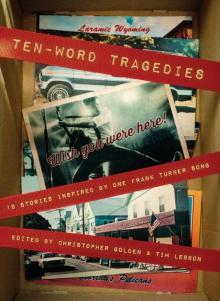 Ten-Word Tragedies
Ten-Word Tragedies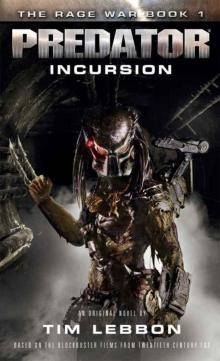 Predator: Incursion
Predator: Incursion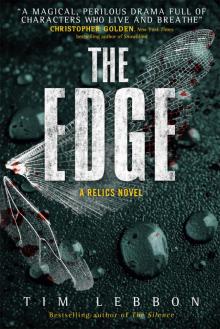 Relics--The Edge
Relics--The Edge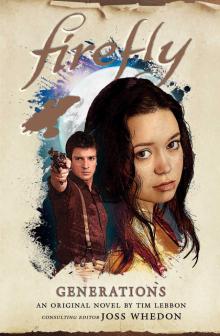 Firefly
Firefly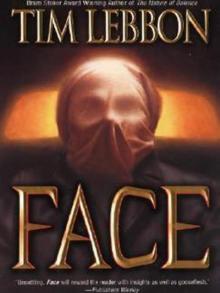 Face
Face Generations
Generations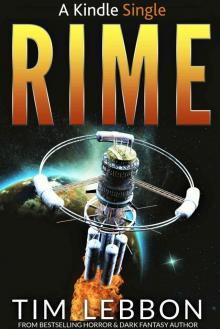 RIME (Kindle Single)
RIME (Kindle Single) Fallen
Fallen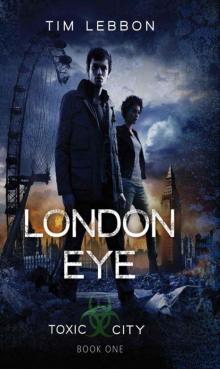 London Eye tc-1
London Eye tc-1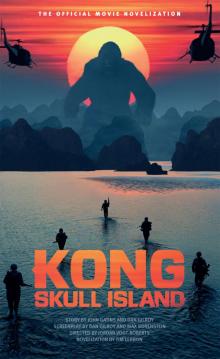 Kong: Skull Island
Kong: Skull Island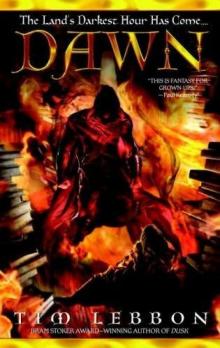 Dawn n-2
Dawn n-2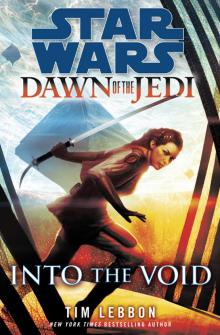 Into the Void: Star Wars (Dawn of the Jedi)
Into the Void: Star Wars (Dawn of the Jedi)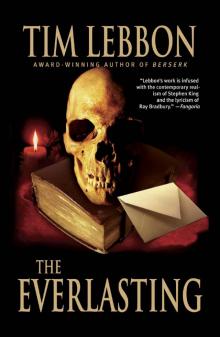 The Everlasting
The Everlasting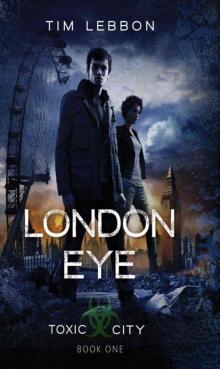 London Eye: 1 (Toxic City)
London Eye: 1 (Toxic City)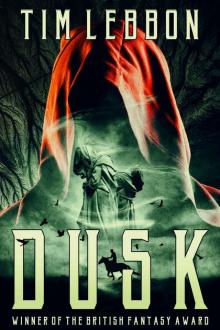 Dusk: a dark fantasy novel (A Noreela novel)
Dusk: a dark fantasy novel (A Noreela novel)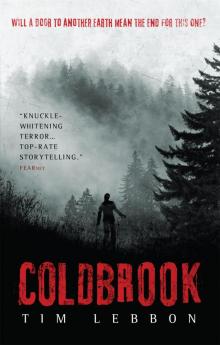 Coldbrook
Coldbrook Alien
Alien Dusk
Dusk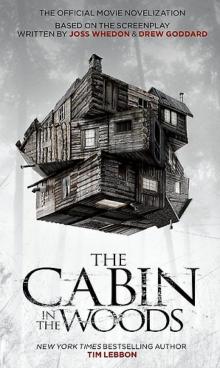 The Cabin in the Woods
The Cabin in the Woods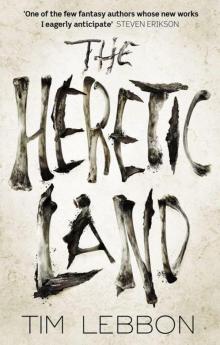 The Heretic Land
The Heretic Land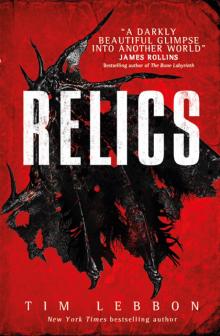 Relics
Relics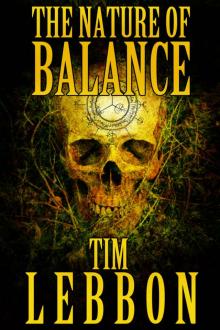 The Nature of Balance
The Nature of Balance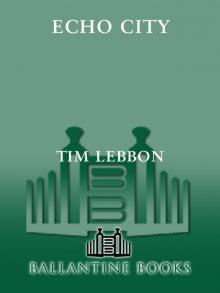 Echo City
Echo City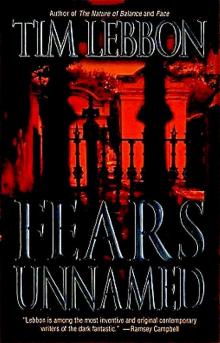 Tim Lebbon - Fears Unnamed
Tim Lebbon - Fears Unnamed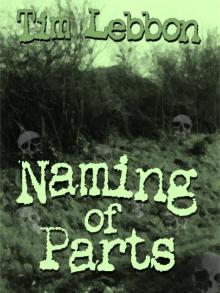 Naming of Parts
Naming of Parts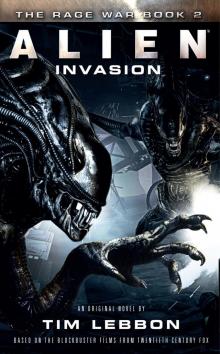 Alien--Invasion
Alien--Invasion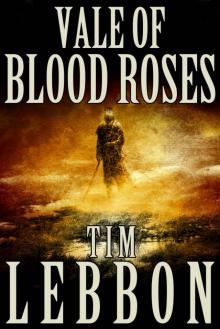 Vale of Blood Roses
Vale of Blood Roses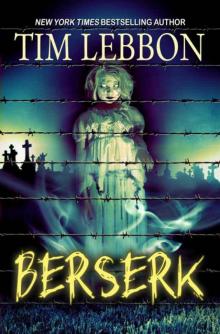 Berserk
Berserk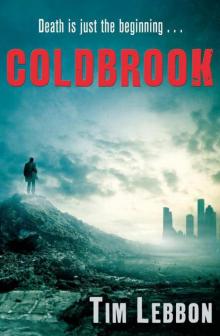 Coldbrook (Hammer)
Coldbrook (Hammer)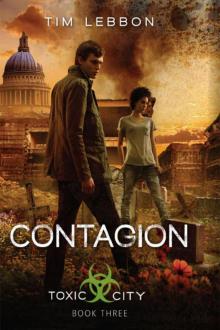 Contagion tc-3
Contagion tc-3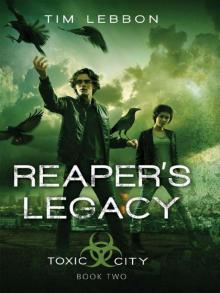 Reaper's Legacy: Book Two (Toxic City)
Reaper's Legacy: Book Two (Toxic City)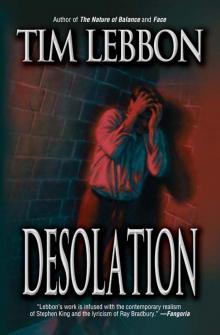 Desolation
Desolation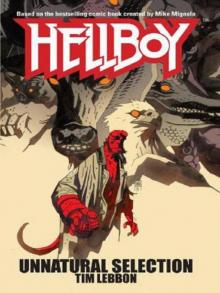 Unnatural Selection
Unnatural Selection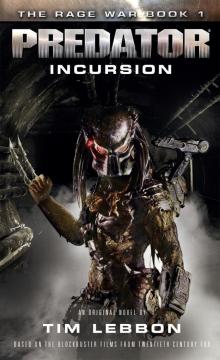 Predator - Incursion
Predator - Incursion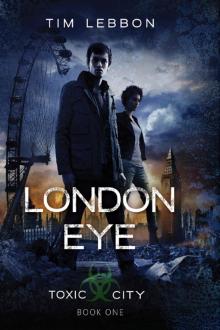 London Eye
London Eye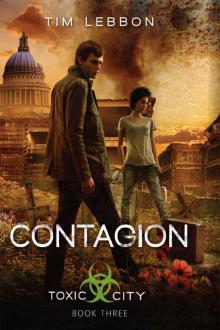 Contagion (Toxic City Book Three)
Contagion (Toxic City Book Three) The Silence
The Silence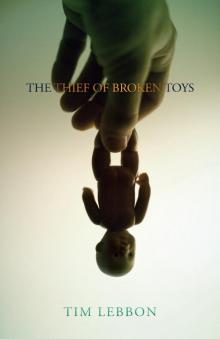 The Thief of Broken Toys
The Thief of Broken Toys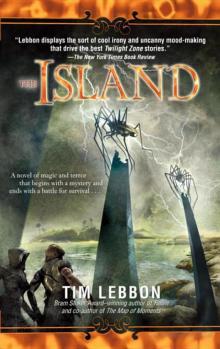 Tales of Noreela 04: The Island
Tales of Noreela 04: The Island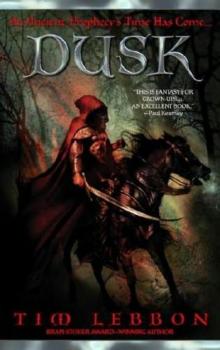 Dusk n-1
Dusk n-1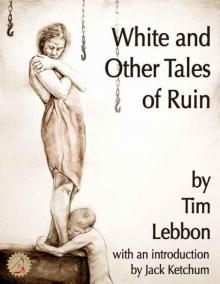 White and Other Tales of Ruin
White and Other Tales of Ruin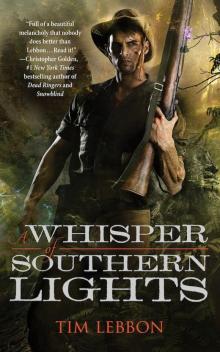 A Whisper of Southern Lights
A Whisper of Southern Lights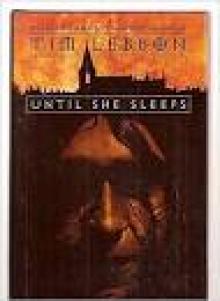 Until She Sleeps
Until She Sleeps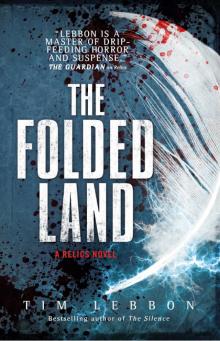 Relics--The Folded Land
Relics--The Folded Land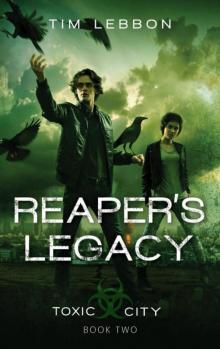 Reaper's Legacy tc-2
Reaper's Legacy tc-2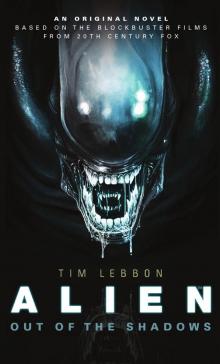 Alien: Out of the Shadows
Alien: Out of the Shadows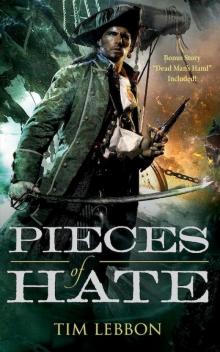 Pieces of Hate
Pieces of Hate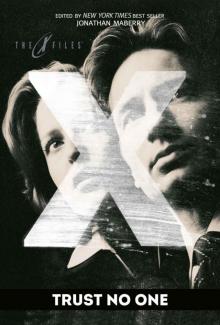 X-Files: Trust No One
X-Files: Trust No One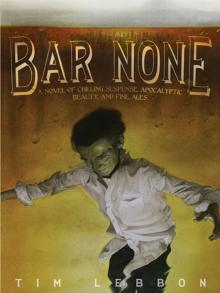 Bar None
Bar None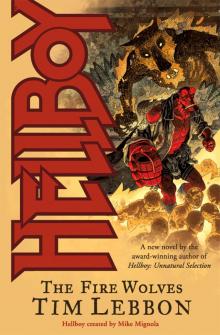 The Fire Wolves
The Fire Wolves